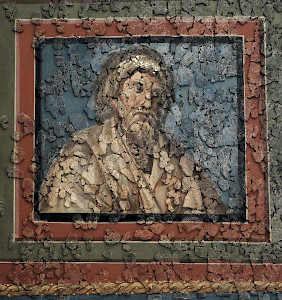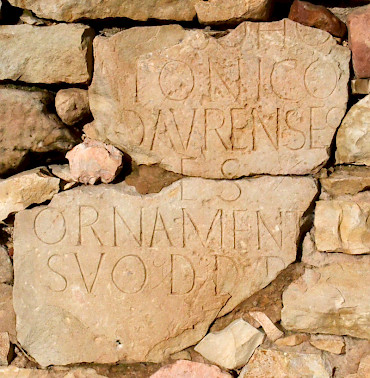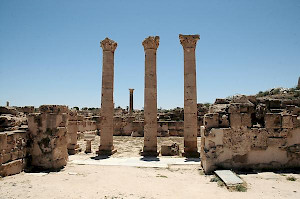Apuleius
Apuleius (c.125-c.180): Roman author and orator.

Apuleius was born in Madauros, modern M'daourouch in Algeria, a Roman colony in the province of Numidia, far from the romanized Mediterranean shores. In his Apology, he describes his ancestors as Numidians and Gaetulians, the latter being desert nomads.

After the death of his father, a provincial magistrate, Apuleius inherited a substantial fortune, which allowed him to study in Carthage and Athens and become proficient in Greeks rhetoric and the neo-Platonic philosophy of his age. Proceeding to Rome, he studied Latin rhetoric as well. He probably worked there for a while as an orator in the courts, before returning to North Africa. He must have traveled in Asia Minor and Egypt, where he met philosophers and learned more about the mystery cults flourishing at the time.
On his return to Africa, he was of having practiced magic to obtain the fortune of a wealthy widow. He had to defend himself in Sabratha before a court of magistrates chaired by the proconsul of Africa Proconsularis. In his Apology) he ridicules his opponents and it is one of the funniest works from Antiquity.

His main work is the Metamorphoses of Lucius, the story of a young man traveling in Thessaly, where he spends the night in the house of a witch, tries some magic, and changes not in a bird, as he had intended, but in a donkey. After all kinds of misadventures, the goddess Isis intervenes and saves him. (The story is also told by his contemporary Lucian.) The Metamorphoses of Lucius contains secondary narratives, like the fairy tale of Amor and Psyche, and was so well-known that is was nicknamed The Golden Ass.
Other works are the Florida, a treatise about Plato, and a treatise on those enitites that are go-betweens between gods and humans. He may have translated the Aristotelian text On the Universe as well.